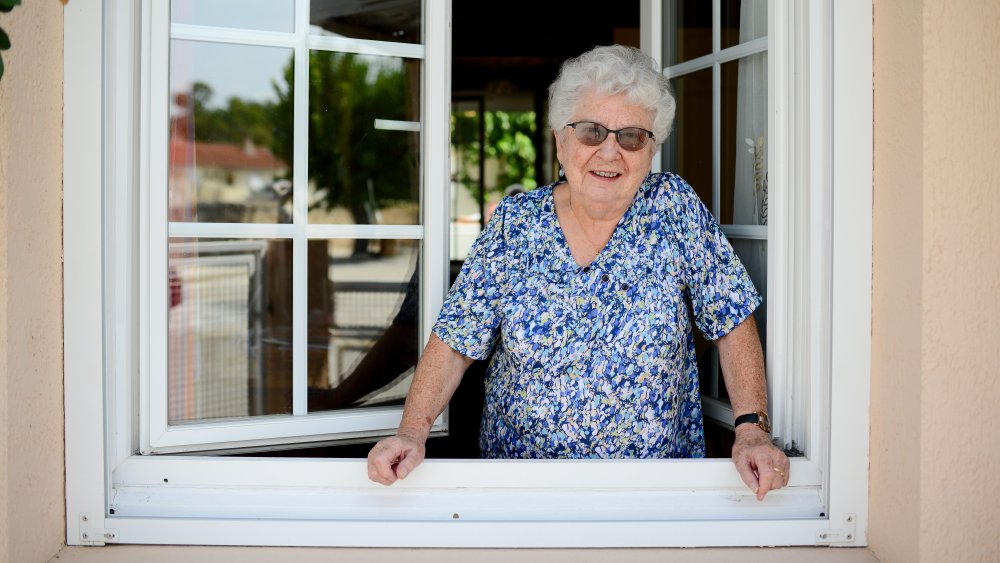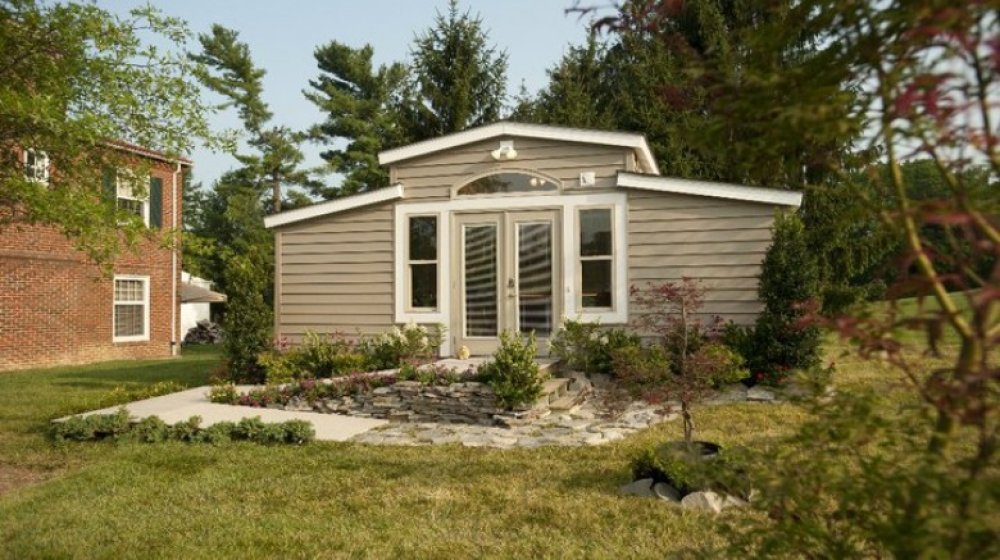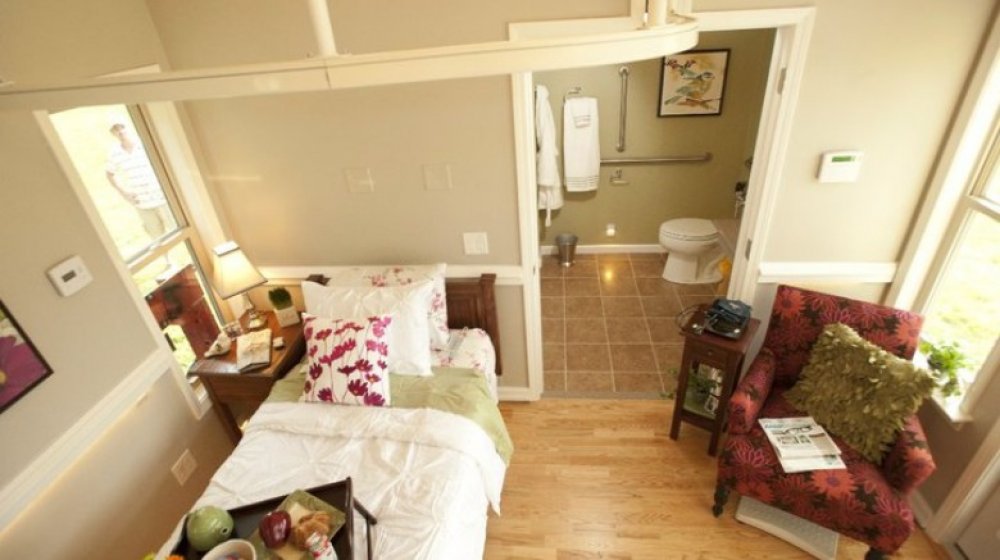The Truth About Granny Pods
Move over, "she sheds." The latest trend in purpose-built tiny house variants is the "granny pod" — a small backyard dwelling meant to accommodate seniors. The granny pod may seem like an updated version of the old in-law cottage or apartment, but is actually a term applied to a unit that was designed specifically to address the medical needs of the mentally or physically disabled elderly.
These units, which are no larger than a garden shed, can be placed in the backyard of a single-family home and be connected to that home's utilities. While they require an initial investment between $100,000 and $250,000 to build, the granny pod can be a very cost-effective solution to assisted living or nursing homes that may cost from $40,000 to $90,000 or more per year (via Country Living).
How 'granny pods' came to be
The original granny pod, called a MEDCottage, was the brainchild of a Methodist pastor in Virginia. While visiting a parishioner miserably housed in a nursing home, the Reverend Kenneth Dupin got the idea of developing a tiny, portable unit that would be equipped with the latest technology to monitor and assist with its resident's medical needs. Technology could also be used to provide that resident with entertainment, including music, movies, and reading materials.
The first MEDCottage hit the market almost a decade ago, but similar units are now being produced by cutely-acronymed competitors such as ASAPs (Architectural Solutions for Aging Populations ), PALS (Practical Assisted Living Solutions), and ECHOAs (Elderly Cottage Housing Opportunity Additions) (via Senior Care Advice).
Not everyone's a fan of granny pods
The term "granny pod," while now in common use, was first coined by Fairfax County Supervisor Jeff McKay in an attempt to express his disapproval of the whole concept: "Is it a good idea to throw people into a storage container and put them in your back yard?" he asked the Washington Post, speculating that the adoption of these pods, made legal throughout the state of Virginia by special legislation, could make a mess of local zoning ordinances.
While New York and California have also passed laws permitting granny pods statewide, numerous localities have not followed suit, due to concerns expressed by property owners over... we're not really sure. CVS running out of Werther's Originals and Starlight mints? Long lines at the Golden Corral? Gangs of hooligans on walkers stealing tennis balls? Or people playing moderately loud big band music at the shocking hour of 8 p.m.?
Whatever the objections of the NIMBY crowd, we're betting that quite a few of the grannies — and grampies — living in these pods are happy to have their own space, no matter how small.


